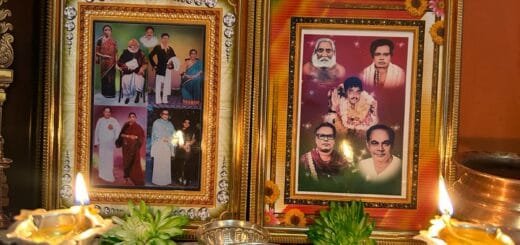Sha Philosophy – Chapter8: HATRED (ENMITY)
Indeed this “ hatred (enmity) ( Dwesha or Virodh )” is the reason for this world to separate from Eeswara (God) . This world appears to be the complex of five elements. Indeed there is hatred among every element . The creation, which consists of soul, is in the form of moving and non-moving things. There is enmity among them. There are 84 Lakh (8.4 million) types of life forms in this animated nature until the soul evolves in succession and takes the human form. There is hatred ( enmity ) in every creature. Indeed every creature is full of hate. This hatred exists even after the soul takes human form. There is hatred ( enmity ) between human beings i.e., one man hates the other man. Father hates son. Son hates father. Wife hates husband. Husband hates wife. Brother hates his real brother. Man hates woman. Woman hates man. One family hates the other family. Similarly there is hatred ( enmity ) among families, castes, creeds, religions, associations, villages, nations and countries.
This “ hatred” ( enmity ) is a natural and also unnatural phenomenon; it appears involuntarily among human beings. It connot be regulated ( I.e. if you want your hatred for someone to get relieved, it won’t , and similarly if you want to hate somebody it won’t just occur in you ). However, by keeping these facts in view, indeed human beings continuously strive to abolish this enmity, which is full of hatred. Indeed man always aspires to build unity and harmony among human beings.
As mentioned earlier, indeed this poisonous hatred ( enmity ) is the cause for separation of this Nature from God. The semblance of this Nature is time ( duration ) . The nature of Jnani (wise man) is, to abolish this hatred ( enmity ) , to discover a peaceful state of coexistence and live. However, he cannot bring peace into Nature and also in other natural things, because they are beyond his control. But he can visualize the hatred ( enmity ) among the things nearer to him or which are under his control . When he is about to feel the hatred ( enmity ) of others, of his own he should become calm, keep balance of mind and then abolish that hatred ( enmity ) with patience.
To be precise, here are some examples:
As a son, The Jnani should try to assess the state in which the hatred in his father breaks out and understand the circumstances in which it radiates on him. In that situation, if that Jnani shows patience, in due course of time, his father, of his own, will realize his fault and repent for his rage. The man, who can bring such an attitudinal change in his father, is indeed fit to be called Jnani ( wise man ).
As a father , when his son raises a protest against him with hatred, the Jnani should divert him by acting according to that situation. Then he should behave in such a manner with patience that, his son realizes his mistake of his own in due course of time in his life, feels sorry and repents. The man, who can bring such an attitudinal change in his son, is real Jnani.
As a brother , when the feelings of disagreement ( difference of opinions ) of his brothers and sisters transform into hatred, then the Jnani should avoid their wrath and labour hard for his own prosperity only. In due course of time, when they see his elevated position in the society, they should bow their heads in front of him. Feel sorry and repent for the harm they did due to their hatred. The man, who can bring such attitudinal change in his brothers and sisters, is indeed Jnani.
As a husband , the Jnani should never allow the hatred towards his wife to enter into his heart at any moment, even though she hates him due to some reason. He should behave with his wife in such a harmonious manner with patience so that she realizes her mistake of her own and repent for it. The man, who can bring such an attitudinal change in his wife, is indeed fit to be called Jnani.
Among human beings, this hatred also appears as enmity between castes and creeds, religions, groups and races. Jnani differs with such things with a view to leading his life in an acceptable way by all ; he keeps distance from such discriminations by himself. He critically examines the unexpected , undesirable events and their consequences, which occur due to the hatred among the human beings.
The Jnani realizes that the divine energy originated from Eeswara ( God ) is dwelling in every creature in the form of life ( soul ). The human beings are in such a state that, they are not able to realize this fact due to the influence of Kalalahasakti ( the great energy called time ). It enrages the hatred among human beings in the form of frenzy. The Jnani knows how such hatred among the human beings leads the human soul, which is in Viswarupa ( cosmic Form ) originated from Eeswara ( God ) into quiescent births. As Jnani realizes this fact, he grieves and repents for this hatred. Jnani beholds such Nature and seeks refuge in sathguru ( True Master ), who reveals its transformation. With the blessings of Sathguru the Jnani,
. Ensures that the hatred, which exists in the form of enmity, departs from him.
. Realizes that, indeed in every creature harmony is hidden.
. Transforms himself into an image of that harmony, attains salvation by obtaining Viswa Rupa ( Cosmic Form ) originated from Eeswara.
. Realizes that, in the hatred itself, love, stability, harmony and peace conjointly coexist.
Changes his life style on realizing the above said facts and transform himself into a Nirdweshi ( man without hatred ( enmity ) ).
Such Jnani indeed is worthy of respect in this world.





